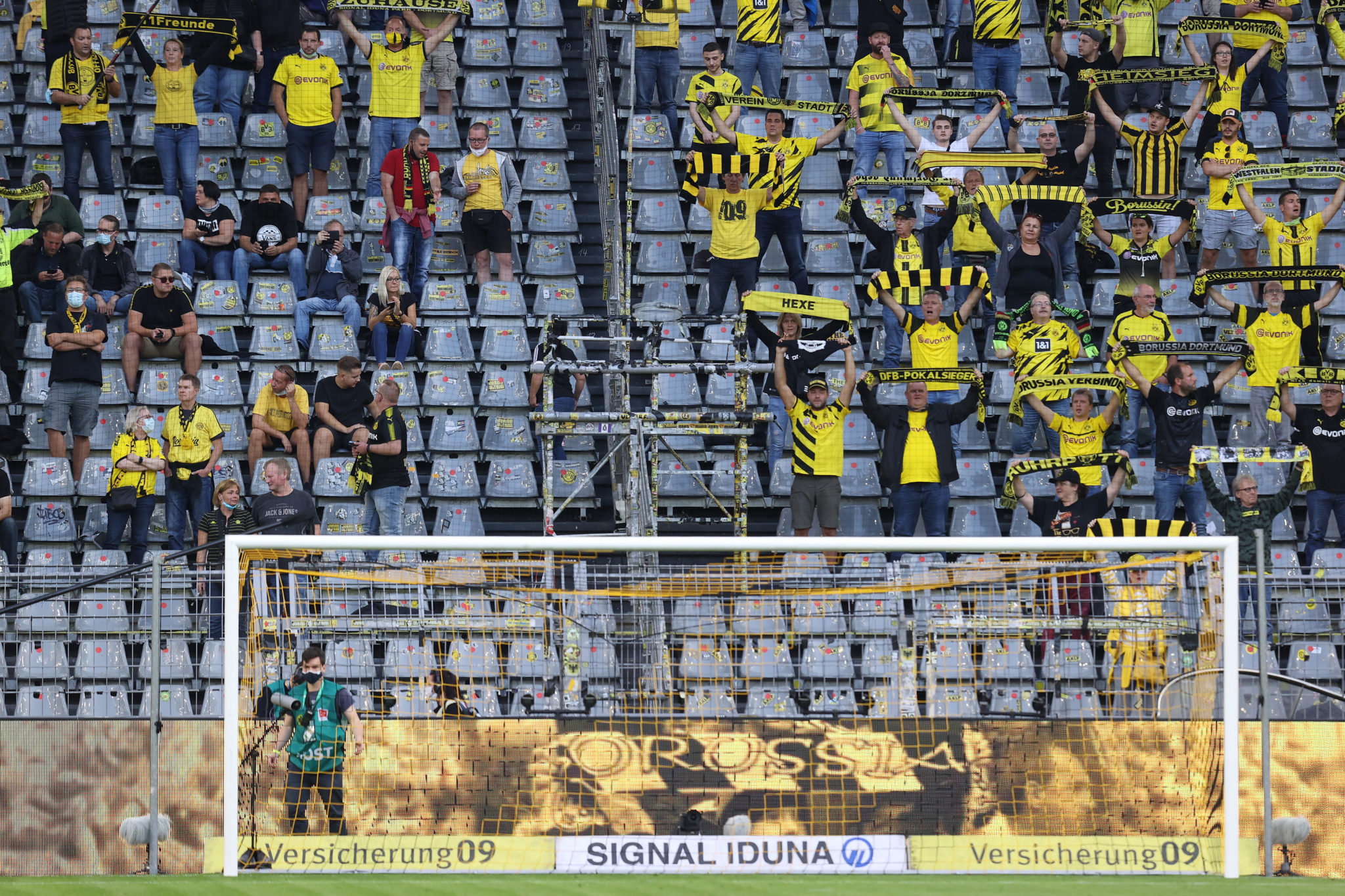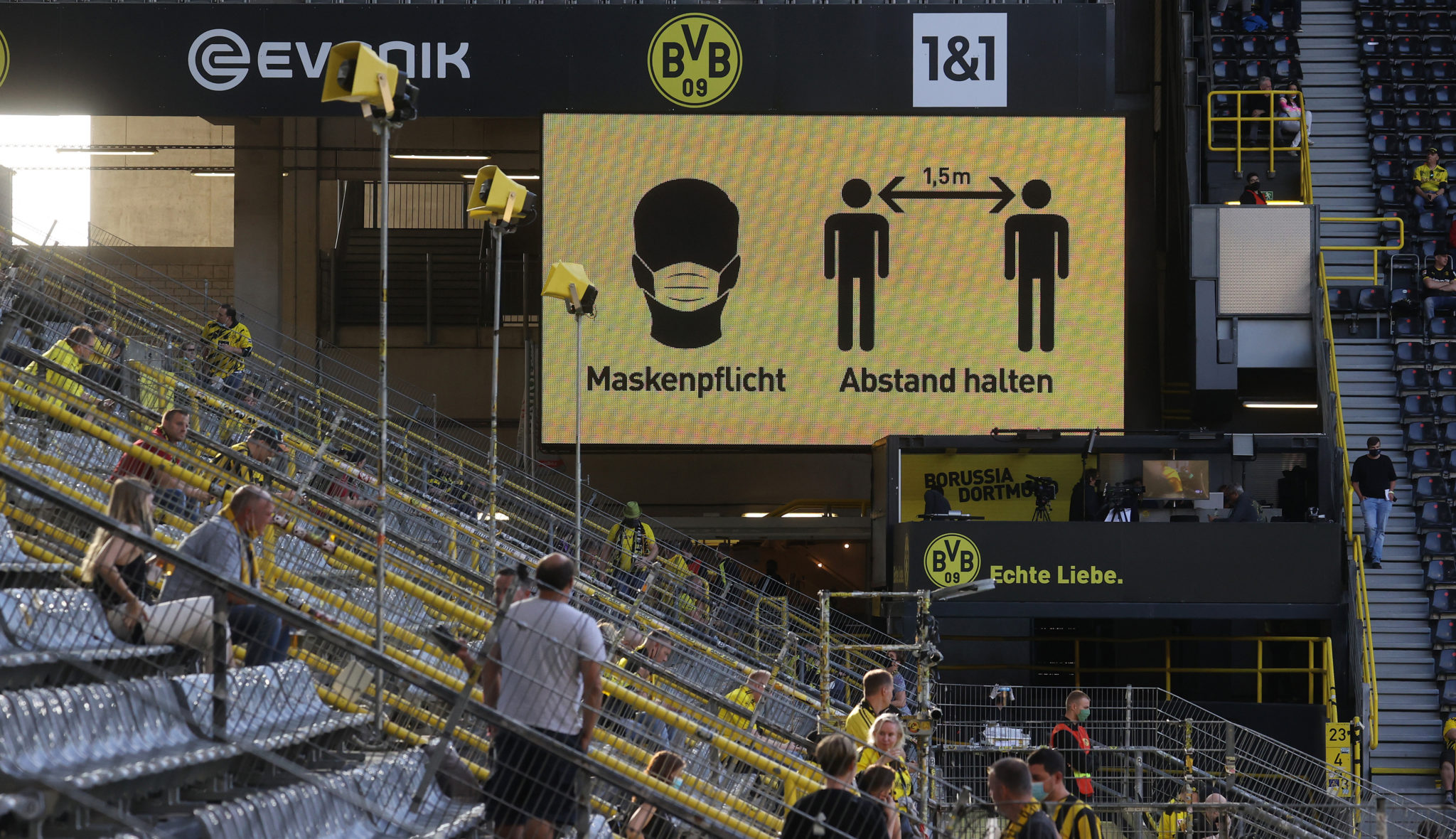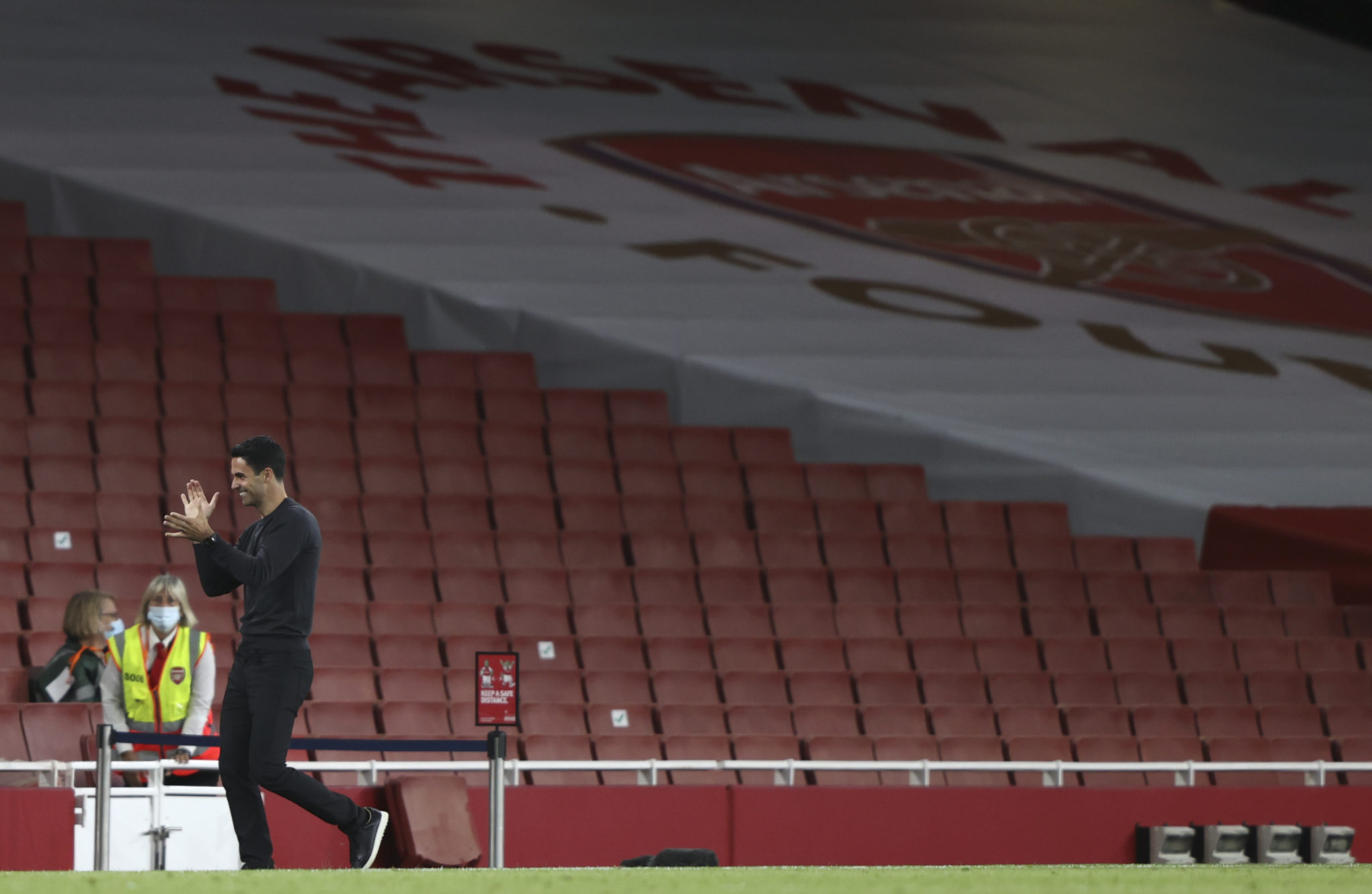The Premier League offered up an abundance of goals for those tuning into English football around the world over the past weekend.
There were 39 goals scored across Saturday and Sunday, while Wolves host Manchester City on Monday evening, as well as a clash between Aston Villa and Sheffield United at Villa Park.
While uncertain, it is plausible that 50 goals may be scored across one weekend of fixtures. The product on display has been entertaining since football's return, only diluted by the continued absence of supporters.
Borussia Dortmund racked up an opening day 3-0 victory at home to Borussia Monchengladbach and it was pleasing to see 9,300 fans allowed back into the Westfalstadion.
 firo: 19.09.2020 Fuvuball: Soccer: 1st Bundesliga BVB Borussia Dortmund. - VfL Borussia Mv? Nchengladbach, Moenechengladbach, Gladbach 3: 0 9300 FANS IN SIGNAL IDUNA PARK HERE THE SvúDTRIBvúNE CELEBRATED ITSELF AND YOUR TEAM WITH DISTANCE RULES AND HYGIENE CONDITIONS, CORONA, | usage worldwide
firo: 19.09.2020 Fuvuball: Soccer: 1st Bundesliga BVB Borussia Dortmund. - VfL Borussia Mv? Nchengladbach, Moenechengladbach, Gladbach 3: 0 9300 FANS IN SIGNAL IDUNA PARK HERE THE SvúDTRIBvúNE CELEBRATED ITSELF AND YOUR TEAM WITH DISTANCE RULES AND HYGIENE CONDITIONS, CORONA, | usage worldwideIt was even more pleasing to see Dortmund's young guns walk over to the Sudtribune to pay their respects to those who have been denied access to their favourite pass time for far too long albeit for health reasons.
Several EFL clubs also welcomed fans through the turnstiles over the past weekend.
While this is a welcome sight, the return of supporters to football grounds across Europe is not as straightforward as it would seem.
Over 210km away, Hanover supporters were denied the chance to watch their team beat Karlsruher in the Bundesliga 2. Instead, 500 corporate sponsors were allowed into the game at their expense.
Hanover's match-going supporters and ultras greeted these "deserving" people at the ground with a red carpet, as highlighted by Matt Ford, a freelance journalist focusing on fan culture in Germany.
Their message? "Red carpet for sponsors, red card for us!"
„Roter Teppich für Sponsoren, rote Karte für uns!“ #rotekurve pic.twitter.com/rHkVjtnmch
— Rote Kurve (@Rote_Kurve) September 19, 2020
This issue is not isolated to one club in Germany, however. Already there have been ominous noises coming from Premier League clubs that the wealthiest supporters will be rewarded once limited numbers are allowed to attend games.
The Premier League is still aiming to see fans allowed into stadiums on October 1st and they have a pressing issue that they need to address beforehand.
Tottenham, who had a PR disaster at the beginning of the pandemic when they decided to furlough staff members, have made it clear that the amount of money paid for a season ticket will determine who will be lucky enough to gain access to the Tottenham Hotspur stadium.
North London rivals Arsenal are also set to give premium and gold membership ticket holders first priority of a return as well.
Both clubs have spent huge sums on players wages in the past number of weeks, on Pierre-Emerick Aubameyang, Willian and Gareth Bale to name but a few.
Why are Tottenham availing of a government scheme and Arsenal forcing 55 staff members into redundancy if they have these cash surpluses lying around?
Why are they discriminating against a section of their own supporters in favour of the wealthiest over a fair system of distribution?
John Giles, appearing on Off The Ball when Arsenal announced the decision to let go of several staff members, answered that question with conviction.
“It’s shameful, to say the least that a club like Arsenal, who have the money and spent the money, and are giving Aubameyang £100,000 a week are laying people off like that. It’s very bad form.
 firo: 19.09.2020 Fuvuball: Soccer: 1st Bundesliga BVB Borussia Dortmund. - VfL Borussia Mv? Nchengladbach, Moenechengladbach, Gladbach 3: 0 DISPLAY BOARD WITH RULE FOR KEEPING THE FANS AWAY, MASKING OBLIGATION | usage worldwide
firo: 19.09.2020 Fuvuball: Soccer: 1st Bundesliga BVB Borussia Dortmund. - VfL Borussia Mv? Nchengladbach, Moenechengladbach, Gladbach 3: 0 DISPLAY BOARD WITH RULE FOR KEEPING THE FANS AWAY, MASKING OBLIGATION | usage worldwide“I don’t think it will happen because I think the supporters will react against this.”
In England will they though?
Long devoid of an active fan culture, supporters of the Premier League regularly resign themselves to whatever decision is taken by a particular owner with little dispute involved.
Without the 50+1 rule of ownership that German supporters cherish above all else, English fans have very little meaningful options available to them in terms of protest.
That being said, a voice still carries some meaning, as evidenced by Liverpool's u-turn over their own furlough decision.
"A critical stance towards one's own club is a key element of German fan culture something which may come as a surprise to some supporters of Premier League teams," Ford outlined in a recent preview for this seasons Bundesliga.
Unless this tactic is criticised from those within an individual supporter base more owners will feel they have a license to move against those who struggle to afford a season ticket in the first place.
 Arsenal's manager Mikel Arteta celebrates after the English Premier League soccer match between Arsenal and West Ham at the Emirates Stadium in London, England, Saturday, Sept. 19, 2020. (AP Photo/Ian Walton, Pool)
Arsenal's manager Mikel Arteta celebrates after the English Premier League soccer match between Arsenal and West Ham at the Emirates Stadium in London, England, Saturday, Sept. 19, 2020. (AP Photo/Ian Walton, Pool)Since March, we have trudged forward listening to generic speeches being made about the need to support one and other "now more than ever." That type of rhetoric met a swift ending and the fractures in society became more apparent than they were before.
Football is no different in this regard. As the game returned from a short break, the slow drumbeat of commercialism and insatiable appetite for spending outrageous fees on players began to pick up pace.
What will football look like in the next number of years? What do we wish it to become? "Now more than ever" these questions are in need of serious consideration.
Football clubs need to provide clarity on whether they value all of their fanbase or only the ones with the fattest pockets.
Download the brand new GoLoud App in the Play Store & App Store right now! We've got you covered!
Subscribe to OffTheBall's YouTube channel for more videos, like us on Facebook or follow us on Twitter for the latest sporting news and content.








